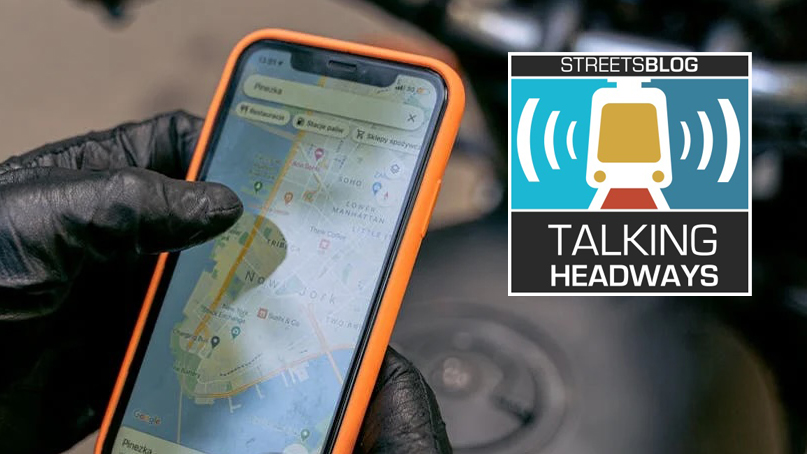This week on Talking Headways we’re joined by writer Rob Walker to talk about his book, City Tech: 20 Apps, Ideas, and Innovations Changing the Urban Landscape. We discuss data collection, misconceptions, impressive transportation technologies such as e-bikes and how technology has progressed in the last decade.
Scroll down below the audio player for an edited excerpt of our conversation, or click here for an unedited, AI-generated transcript of the entire conversation.
Jeff Wood: There were a number of themes that came across in the book... We just talked about climate change and climate action, but there’s also mobility innovation, information, and data sharing, those types of things, and then built environment solutions, like the 3D printing and things like that. And so those are the, generally, like the four categories that I could think of that kind of itemized what was going on. I like to categorize stuff, but I found that really interesting. And I’m wondering what — from a transportation standpoint — what struck you the most from this kind of movement?
There’s a number of different mobility ideas in there. There’s the curb management, there’s dockless bikes, e-bikes, delivery systems and electric buses. Obviously it comes over into some of the climate stuff, too, but I’m curious, like, what was the thing that struck you the most out of some of those transportation ideas and mobility thoughts?
Rob Walker: Sure, a couple of things. One, definitely the climate change, the carbon emission, angle just comes up over and over again in those things. A second thing, and this was a stealth theme in the book that is most clearly revealed through the transportation variations and experiments, was the effect of the pandemic. The pandemic didn’t exactly change the way we think about transportation, although it did offer a glimpse of a very different transportation world for a brief period of time.
Secondarily, the greenlighting of new projects and new experiments and new pilots almost overnight at much faster pace than government is used to working. Even simple things like approving the use of the roadway outside of a restaurant for tables, so people can have outdoor dining, is a zoning change that would have taken years of debate and they would do it in a week.
And then so to take it more to a planning level, Aspen was one place where they took advantage of this moment to just rewire their whole thinking about how the curb is managed in downtown Aspen, which is very small area. And they have rules about parking and implemented new technology that would keep track of you could get appointments for the curbside.
Now, did all this stuff stick? No, a lot of it didn’t, but it introduced a new kind of discourse around transportation. The curb, traffic flow, how to use crucial land of the downtown urban core in a place like, or in any city, like that, where there have been debates for years about how parking should be managed, about who should have access to the curb. We were living in a world, that hasn’t gone away, where there’s a lot more delivery stuff going on. So maybe you want to privilege delivery over customer parking by the department store.
Transportation was one of the places where you saw that play out the most emphatically and undeniably. And I think that while some of those experiments didn’t work out, you’re seeing an openness to flexibility that has persisted. We’re not really talking about the pandemic anymore, but I think that it did show us a different vision of how street congestion could be addressed.






